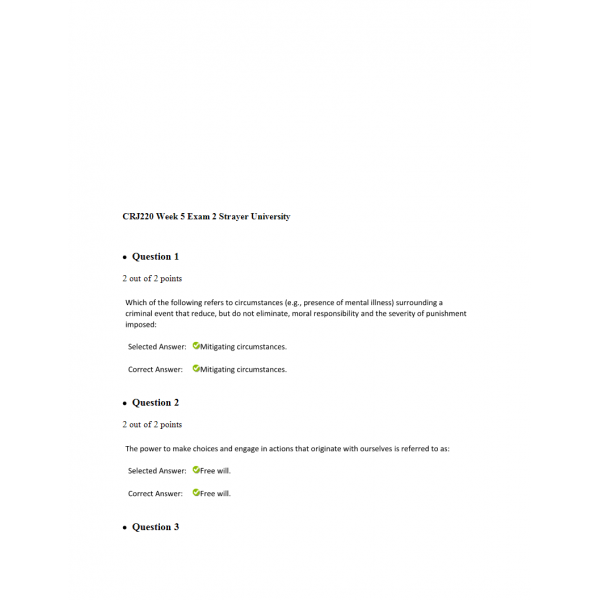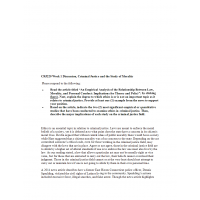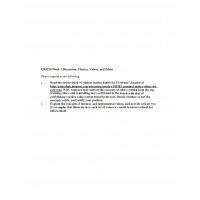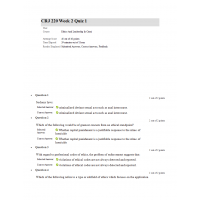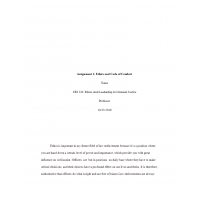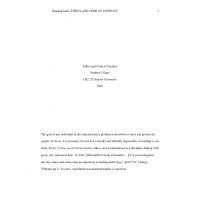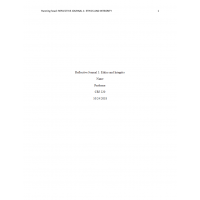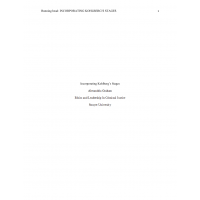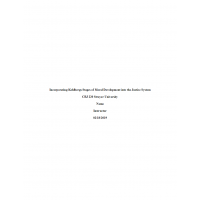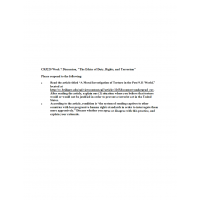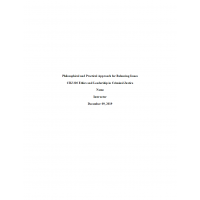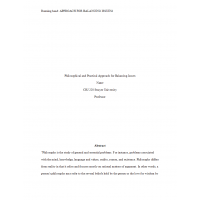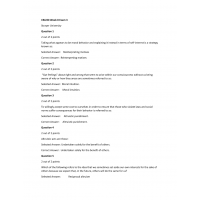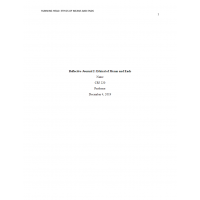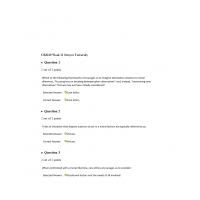CRJ 220 Week 5 Quiz 3 with Answers
CRJ220 Week 5 Quiz - Question and Answers
1. Which of the following refers to circumstances (e.g., presence of mental illness) surrounding a criminal event that reduce, but do not eliminate, moral responsibility and the severity of punishment imposed:
2. The power to make choices and engage in actions that originate with ourselves is referred to as:
3. Self-defense and defense of others would be considered:
4. Which of the following is theorized to play an important role in imitative behavior and our capacity to relate to and empathize with other people?
5. Modern-day determinism tends to be based in:
6. In simplest terms, determinism holds that:
7. Moral responsibility or blameworthiness that attaches to persons who freely and knowingly engage in wrongful actions is sometimes referred to as:
8. If you were to argue that although a person with an IQ of 60 cannot be a world-renown physicist, s/he still has the freedom to choose within limits of what is physically, psychologically, and socially possible, you would be presenting which of the following positions?
9. Identifying and incapacitating people we believe to be at high risk for future criminal activity before they have had the opportunity to commit those future criminal acts is a practice referred to as:
10. Which of the following is sometimes held to be the only "event" for which there is no cause?
11. Which of the following, derived from John Stuart Mill, suggests that governments can legitimately create and impose laws only where it is necessary to prevent people from harming others?
12. Which of the following positions holds that there are eternal, unchanging moral laws that apply to all people, everywhere?
13. When we claim that certain moral values or principles (e.g., do not steal) apply or should apply to all people, everywhere, we are saying that some values or principles are:
14. Which of the following positions holds that moral beliefs vary from person to person, and that one person's beliefs and practices cannot be said to be more right (or wrong) that any other person's?
15. The Comstock Act:
16. Advocates of which of the following often appeal to the harm principle to support their position:
17. Which of the following might help us develop open-mindedness and the virtue of tolerance?
18. Planned, premeditated killings of family members whose behavior is judged to have brought shame or dishonor to the family are referred to as:
19. The argument that sodomy should be prohibited simply because it is immoral -- not because it harms anyone -- would be an example of:
20. Which of the following suggests that governments can and should pass laws to protect citizens from themselves, looking out for its citizens as a father might for his children?
21. A law enforcement officer accepting money or other favors for overlooking traffic violations would be classified as which of the following forms of corruption?
22. With respect to religion and morality, the problem of common ground refers to the fact that religious commands and principles:
23. Which of the following actions, if committed by a law enforcement officer, would be considered “corruption of authority”?
24. Which of the following refers to the anxiety or discomfort we experience when we deviate from our own internal standards of right and wrong?
25. Actions by law enforcement officers that exploit the powers of law enforcement for personal gain (e.g., accepting bribes) can be regarded as:
26. Direct misconduct by a police officer, such as extorting money from drug dealers, would be an example of which of the following forms of misconduct?
27. Simply stated, our awareness that certain actions are morally wrong can be referred to as:
28. Which of the following explanations of morality argues that actions are right/wrong, good/bad because they are approved or disapproved of by God (or some other higher power)?
29. Which of the following explanations of police corruption diverts attention away from the possibility that corruption is systemic, arguing instead that corrupt acts are committed by only a few "bad" officers within otherwise ethical departments?
30. Which of the following involves rationalizing misconduct by perceiving informal norms – such as secrecy or loyalty to fellow officers – to be more important than societal laws, norms, or the formal norms of the organization by which one is employed?
| Institution & Term/Date | |
| Term/Date | Strayer |
-
$22.00

